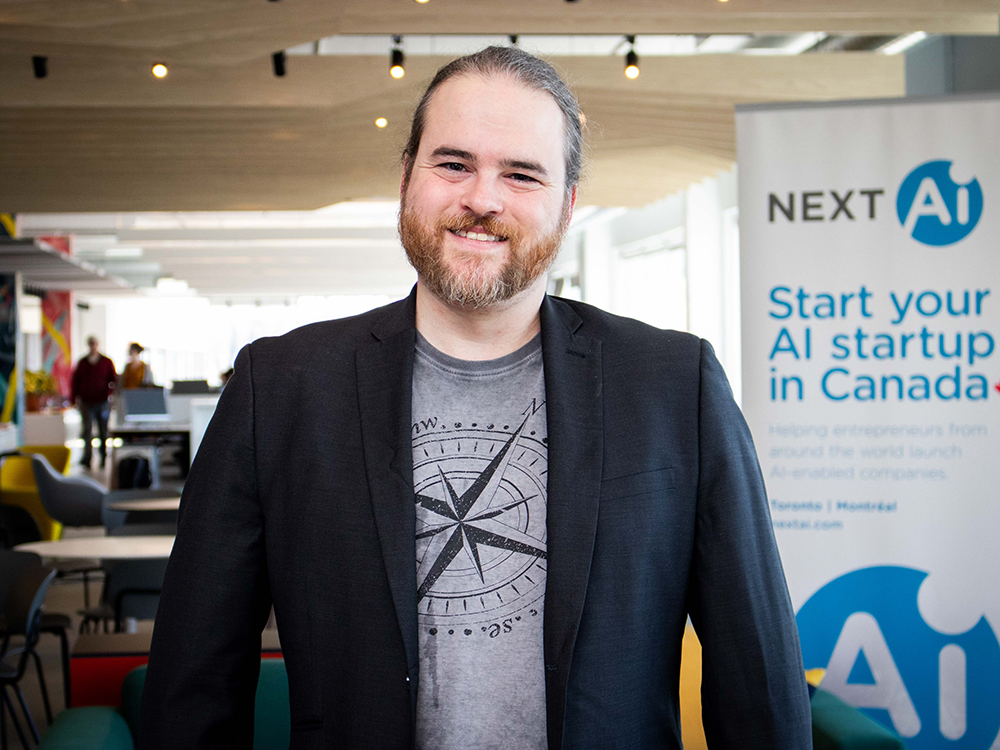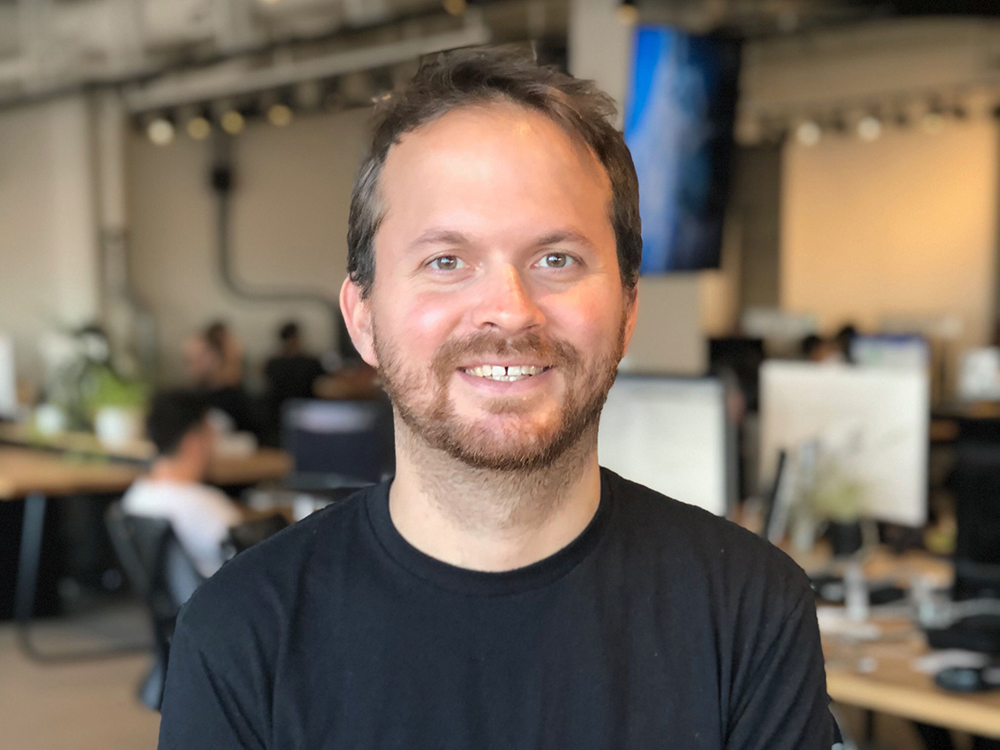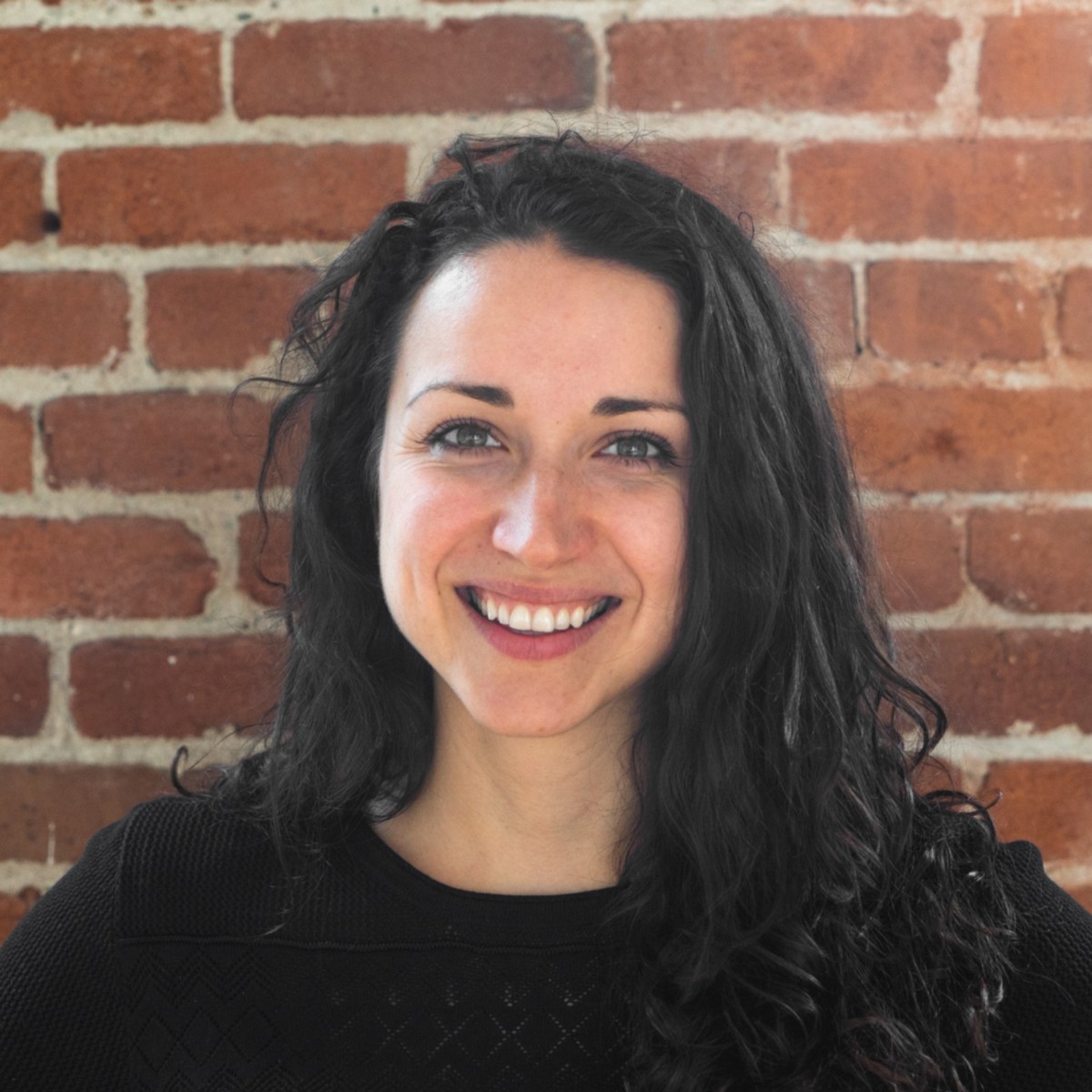
Myelin: Uniting AI and people to share information
Marc-Olivier Schüle’s Story
It is estimated that only 14 percent of scientific research in public health makes concrete contributions to the lives of patients, and that it takes on average 17 years before advances are put into practice. That’s a significant gap between the wealth of new developments that could potentially transform the health sector and their impact on people’s daily lives—a gap that concerns the team at Myelin, a new company whose mission is to make research results accessible to the wider public and to specialized care organizations for those with autism.
In the future, Myelin plans to provide an application that will enable users to receive precise information gleaned from the latest autism research through data that is extracted and processed using artificial intelligence. Myelin’s platform will be able to be personalized for each individual and will allow patients, families, health care workers and researchers to share their experiences in order to enrich the application’s content. Myelin thereby hopes to make life easier for those with autism and their loved ones by centralizing available tools and knowledge on the disorder.
“We realized that there was enormous potential in making all this unused scientific data accessible”
Marc-Olivier Schüle, Myelin co-founder and president
Using innovation to support knowledge transfer
Schüle holds a doctorate in psychoeducation from the Université de Montréal. A crucial aspect of being a psychosocial support worker is facilitating access to the latest research developments. This desire to gather together available data in order to change current practices was already the goal of a non-profit he launched back in 2011, Unipsed, whose website featuring psychoeducational research earned its creator the Société AVENIR award in communication and education at the Forces AVENIR Gala in 2015. He also received a Défi Entrepreneurial Diversité award from the Centre d’entrepreneuriat Poly-UdeM after he and Geneviève Chénard founded Les Éditions Polyvalence, a publishing house specializing in educational material based on rigorous scientific data in the field of social intervention.
While earning his master’s, Schüle met Marise Bonenfant, who was studying information sciences at the time and would later become co-founder and chief knowledge officer at Myelin. “Her expertise was extremely pertinent to structuring our work and achieving our ambitions,” explains Schüle. Together they wanted to create a database of health findings and quickly realized the potential of artificial intelligence for achieving their goal: Learning algorithms enable data to be extracted and classified while keeping their semantic structure, regardless of the original source language. With the help of François Menet, a master’s student in software engineering who came on board as a founder, they launched Myelin, a term referring to the substance in the brain which enables information to circulate more quickly.
Personalized experience for a targeted audience
The decision to focus on autism was made for several reasons. On the one hand, given that the personalization of the service was a key element of the solution offered by Myelin, it was important to tackle a condition with many variations in order to test the application’s ability to adapt. “Autism spectrum disorder is particularly interesting because symptoms vary widely from one person to another,” explains Schüle. On the other hand, product development depended on constant collaboration with a multitude of partners. “People working in the autism sector are part of a very engaged community. They take part in every step of the process, and without them there’s no way Myelin could have become what it is today.”
Even without business training, the three founders knew instinctively to follow the Lean method for continual improvement: They set themselves modest objectives in order to learn more and grow further. “At the very start of the company, you either specialize and become good in that area, or you quickly become bad at doing everything. And particularly in the health sector, you have to prove your worth, and be sure that you have expertise in something particular before you can grow,” explains the Myelin co-founder. After having officially launched the business in 2017, they’ve raised over $10,000 through a crowdfunding campaign aimed at developing a website. Its first version is drawing over 8,000 visitors a month—a significant number for a French-only site devoted to autism that has made no investment in advertising. “That’s far from the goal we’ve set ourselves, but we thought it would give us a better idea of the public’s interest in our approach. When we realized that the path we were taking was answering a genuine need, the question we had was: What solution could we offer people?”
The Myelin team has benefited from many periods spent in growth accelerators in order to better equip themselves in admininstrative and financial terms. “We were lucky to have access to many support programs and to be surrounded by advisors who had a huge effect on us,” confirms Schüle. In 2018, Myelin successfully created its first prototype application, the result of over six months of interviews and workshops with stakeholders in order to better target the challenges of this particular domain. This is what allowed them to refine their original idea: While access to cutting-edge scientific data is important, shared experiences between members of the community are just as essential and need to be integrated into the product. “For us, it was revolutionary. Knowing that some particular intervention worked better in certain contexts or with certain patients, we could then offer tools and services that were a lot more specific and adapted.”
Taking an adaptive business model as an example
It took time to find the right environment for creating a business model, states Schüle. “We spent most of last year thinking about that subject. The mental health sector is complex. There are a lot of economic and ethical challenges when you’re developing a service for users who have real health needs but can’t necessarily pay for your service. But we wanted these people to be able to participate in creating our platform, because we’ve only been able to improve the quality of our product thanks to the data provided by users.”
So they came up with an ingenious solution: While a free version of the Myelin app will be available to everyone by the end of 2019, the company will also offer an optimized paid version to organizations, which will help finance the project. Last year, pre-orders for the app to estimate the number of potential buyers surpassed the team’s expectations. “We aimed for around 150 people, and in the end over 400 people demonstrated interest in our product.” Starting this past January and extending into the summer, Myelin will be in a “co-development” phase, which means the company will be working closely with around a dozen organizations operating in the autism sector in order to test the application. Every month, additional functionality will be added, which enables Myelin to adapt the platform depending on the feedback they get.
“Our approach is direct and holistic,” says Schüle. “We want to reach a maximum number of people and enable them to participate in the creation of a model that will have a positive effect on patients, families, caregivers and researchers, and which will allow us to apply our solution to many other sectors related to mental health. Our dream is to become the ultimate tool for knowledge transfer.”
Myelin in Numbers
- 5 : Number of full-time employees at Myelin
- 18: Estimated number of hours of reading needed per day to keep up with the latest scientific advances
- 266: Percentage representing the extent to which pre-sales of Myelin exceeded the initial goal set by the company
- 3,000: Number of scientific articles published every day. This number is expected to double every 73 days between now and the year 2020.
- 65,000: Estimated number of Canadians who have been diagnosed with ASD, including 18,000 Quebecers
Want to learn more?
Visit Myelin’s website


